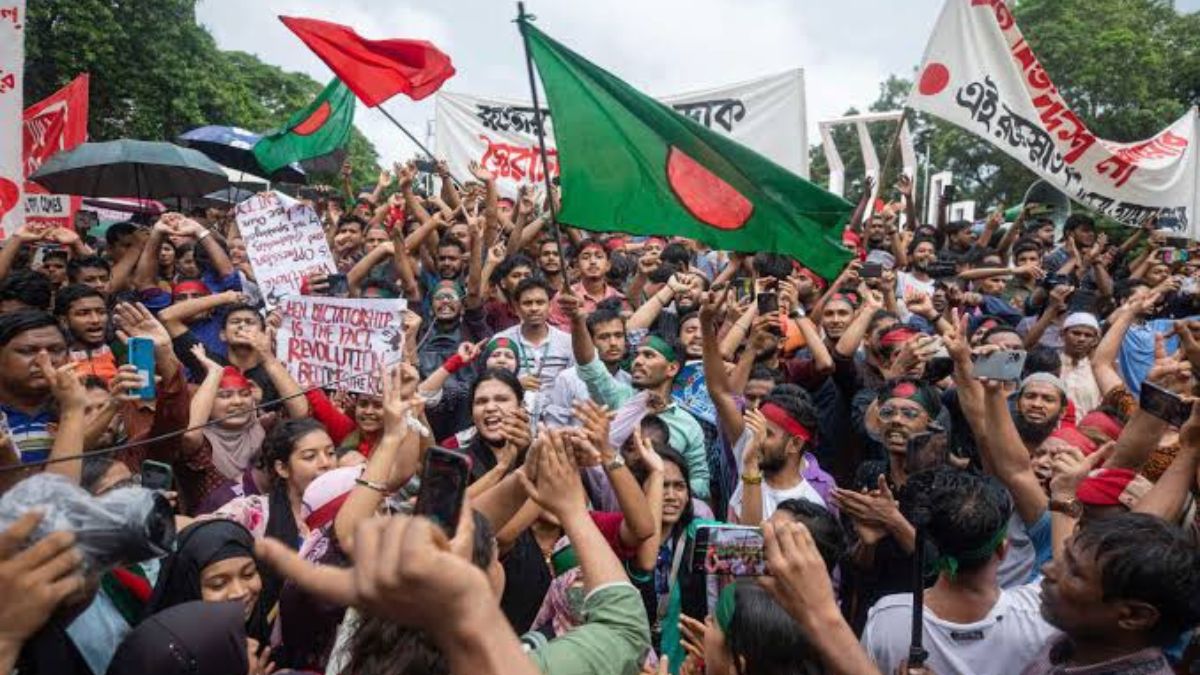Protesters have breached the official residence of Bangladesh’s Prime Minister, marking a pivotal moment in the country’s ongoing political crisis. The incident, which occurred late Friday night, has sparked widespread concern and condemnation both domestically and internationally.
The Prime Minister’s residence, known as Ganabhaban, was overrun by demonstrators who were reportedly protesting against alleged corruption and economic mismanagement by the ruling government. The breach not only symbolizes a significant escalation in the intensity of the protests but also highlights the growing discontent among the populace towards the administration of Prime Minister Sheikh Hasina.
Eyewitnesses described chaotic scenes as hundreds of protesters clashed with security forces before managing to force their way into the residence. The security personnel stationed at the site were reportedly overwhelmed, and there were initial reports of injuries on both sides. The Prime Minister, who was not present at the residence during the incident, has condemned the attack, calling it an act of terrorism aimed at destabilizing the nation.
The protests, which have been brewing for weeks, were initially sparked by allegations of financial corruption and the perceived mishandling of the country’s economic resources. Deteriorating economic conditions, including rising inflation and unemployment, have fueled public anger and dissatisfaction with the current administration.
In response to the breach, the government has imposed a curfew and heightened security measures in Dhaka and other major cities. International reactions have been swift, with calls for restraint and dialogue from various global leaders and human rights organizations. The United Nations has urged the Bangladeshi government to address the underlying issues driving the unrest and to ensure the protection of democratic processes.
The incident at Ganabhaban marks a critical juncture in Bangladesh’s political landscape. As the country grapples with these tumultuous events, the coming days will likely be pivotal in determining the trajectory of both the current administration and the broader socio-political climate of the nation. The global community watches closely, hopeful for a resolution that prioritizes stability, justice, and democratic integrity.

